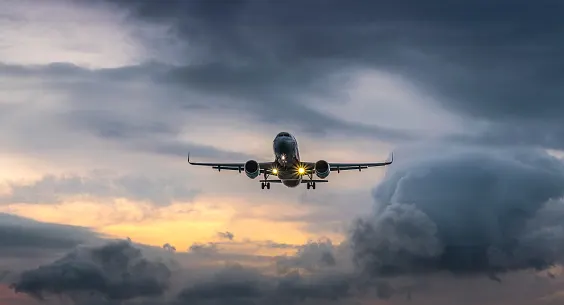
COVID-19 outbreak prompts airline companies in Europe to fly 'ghost' flights
The coronavirus epidemic has led to a noticeable decline in people travelling to and across Europe, resulting in airlines operating flights without passengers
As the COVID-19 epidemic continues to spread globally, people are taking extra precautions to protect themselves from the virus, including spending less time travelling.
The drop in the number of people flying to and across Europe is troubling news for airline companies, who are scrambling to shield themselves from the fallout. Among their response is operating “ghost” flights, which are exactly what the name suggests – companies are currently operating planes without passengers through the continent and wasting thousands of gallons of fuel in the process, as recently reported in the Sunday Times.
To date, there have been more than 100,000 reported cases of coronavirus worldwide, resulting in approximately 4,000 deaths to date.
RELATED: Tim Hortons ditches 'Roll Up the Rim' cups amid COVID-19 fears
It is based on decades-long European Commission (EU) regulations that “ensure that airlines have access to the busiest EU airports on the basis of principles of neutrality, transparency and non-discrimination.” The practice is commonly referred to as a “use it or lose it” system to determine an the airline’s slots.
According to EU regulations, if an airline fails to use 80 per cent of its designated flight slots at a certain airport, it is at risk of losing the spaces to competitors at its annual assessments by government officials. This forces airline companies to justify their slots by having to prove they have the customer demand.
GHOST FLIGHTS HAVE ENVIRONMENTAL COSTS
Depending on the model of the aircraft, some planes can burn as much five gallons of jet fuel per mile of flight, emitting tonnes of carbon dioxide and other greenhouse gases all the while.
U.K. Transport Secretary Grant Shapps has asked regulators for a moratorium on this practice to avoid further environmental and economic repercussions.
The financial cost of flying empty planes adds to the aviation industry’s estimated loss of nearly C$180 million in sales due to people cancelling travel plans because of coronavirus, according to the International Air Transport Association.
In early March, a passenger who took a flight from London to New York found himself on a completely empty plane.
Source: Gizmodo
Thumbnail courtesy of Getty Images.











